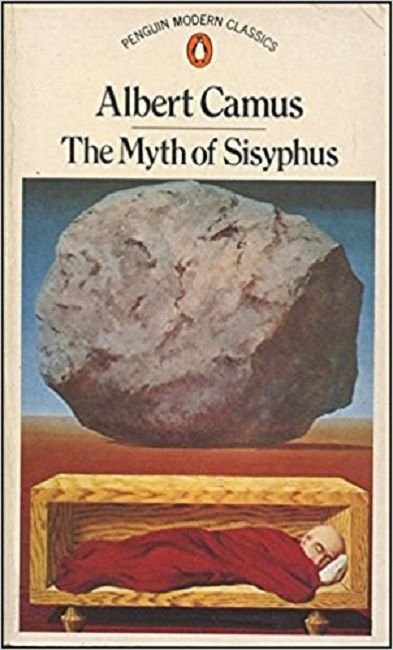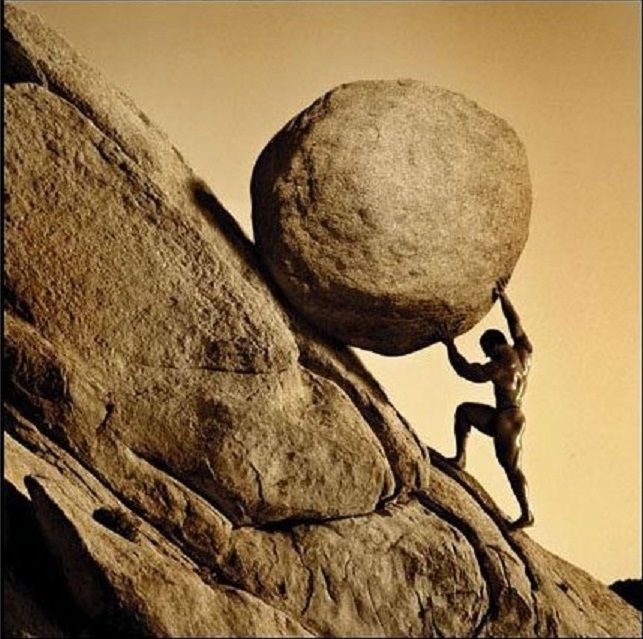Albert Camus and "The Myth of Sisyphus" - the problem with absurdity and suicide

The problem of suicide is one of the most complex and debated issues of antiquity to date. This phenomenon has been occupied by many great philosophers and thinkers. It is also the central question put in the Albert Camus essay, "The Myth of Sisyphus." Camus begins his work precisely by emphasizing the importance of the issue of suicide. To judge whether it is worth living or not to live is to answer the basic question of philosophy. He points out that there are a variety of reasons for this phenomenon - some people commit suicide in the name of ideas that make sense of their lives, others - precisely because of the lack of such ideas, because there is nothing to make sense of. Therefore, Camus, as a central issue in his work, points out the meaning of life. Camus also notes that suicide has always been seen as a social phenomenon - something he himself disagrees with. In his view, it is rather an individual solution that is born deep within the human subconscious. It is a kind of "disclosure," in which one admits that he has failed to cope with life, that life has overcome him, that he does not find sense in the habit and the routine of everyday life, and they seem meaningless and useless. It separates and expels from the surrounding world and it gives rise to the feeling of absurdity. The first topic of Camus's work is precisely the relationship between absurdity and suicide, and more precisely how suicide turns into a solution to absurdity. The second theme concerns "defense against death". As Camus himself says: "There is something stronger in the attachment of man to life than all the troubles of the world. The decisions of the flesh are no less important than the decisions of the spirit, and the flesh denies the destruction. We get the habit of living before we get the habit of thinking. " It concerns rather our innate instincts of self-preservation and the desire to keep our lives at the cost of everything. The third theme is "hope". Once one has realized the futility of life, which is expressed in his monotony and routine, he tries to prove that what he has realized can not be true. He refuses to accept that he has no reason to live, begins to search for meaning in his existence, and hopes that there is a major purpose, some profound meaning. He does not want to put up with the futility and absurdity.

So, the central problem in Camus's essay can be formulated as follows: "Does the absurdity guide the death?" In order to give a precise answer to this question, as Camus himself points out, it is necessary to reasonably and logically, without unnecessary fervor . This Camus called "absurd reasoning" - a non-emotional reasoning. Pascal said, that man is great in his lowness and vanity in his majesty. Is it better not to be ignorant of ourselves if we want to be happy? It is in the answer to this question that the absurd of life is. Camus argues that the absurd depends on both man and world. But the absurd is not in man, but in the world, but in the "world of man." The fact that we do the same thing every day without putting anything on our own and without finding meaning in our existence is the absurdity. "Getting up, tram, four hours in the office or factory, lunch, tram, four hours of work, dinner, sleep, and Monday, Tuesday, Wednesday, Thursday, Friday and Saturday are still in the same rhythm." A man who has realized the absurd remains forever with him. "He gets tired of machine life, and it is this fatigue that causes a stir of consciousness. She awakens him and points to him only two possible outcomes of salvation from absurdity. According to Camus, these two outcomes are: hope (which he calls restoration) and suicide. Perseverance and insight are privileged viewers in this inhumane game, where absurd, hope and death interchange. Suicide is a testimony that one can hardly realize the surrounding senselessness and the impudence of repetitive everyday life and the "routine of life." It is not a way out, nor a decent retreat from absurdity, but an escape from it, the end of an aimless life, a resignation. It is the ultimate point that almost inevitably leads to the denial of the meaning of life. As Camus says that life should not be attributed to meaning, and it inevitably leads to the realization that it is not worth living. These thoughts take away every prospect of the future, kill every hope and stop the whole course of natural human aspirations . This stops the individual's development and prompts him to put an end to his life. Suicide is an irreversible obstacle to development and improvement.

The hope that life makes sense, on the other hand, makes us do our best to prove the usefulness and significance of our existence. It makes us rebel against routine and monotony, deny inertia and refuse to accept it. The rebellion against the everyday absurd that surrounds us is doomed to failure. It is equivalent to the barren Sizifov labor. "Sisyphus is the absurd hero. Absurd as much as his passions and his punishment. The contempt for the gods, the hatred of death, and the thirst for life brought him this inexpressible torture, in which the whole being strained for something unthinkable. This is the price to pay earthly passions. "With great effort, Sisyphus pushes the stone to the top, but just before it reaches its target, the stone collapses back and everything starts from the beginning. This battle of Sisyphus with itself and the world is not absurd. Despite the frustration and infertility of this labor, he brings moral consolation. The feeling that you've come to somewhere that you almost did manage to try again. And even though he puts his life at risk, Sisyphus does not give up and always starts from the beginning. "Here is Sisyphus whole silent joy. His destiny belongs to him. His rock is his real thing." He reaches his victory over fate, over his suffering and grief, and above all the futility of his existence, because he is deep in himself, an incredible and infinite hope - to reach the unattainable.
Camus's absurdity is that the rebellion against the absurd is not about getting to something better (which is practically impossible) but an end in itself - a rebellion in the name of rebellion itself, a constant striving and trying to create a sense of feat and heroism. "The very struggle of the urge to the peaks is sufficient to fulfill the human heart. We must imagine Sisyphus happy. "Similarly, every person who has a goal in life must be happy because even if he has not pushed the stone to the end, at least the satisfaction is that he has moved him at least with a span closer to purpose.
Camus's last sentence in his short novel L'Etranger is one of my favorite closing lines in all of literature.
"For everything to be consummated, for me to feel less alone, I had only to wish that there be a large crowd of spectators the day of my execution and that they greet me with cries of hate."
This image of defiance perfectly encapsulates for me the heroic defiance against absurdity as given in The Myth of Sisyphus.
Upvoted and following. The issue of suicide is freeing the mind from the very limited socially engineered constructs designed to enslave us. Suggesting for @originalworks upvote.
@dakini5d
The @OriginalWorks bot has determined this post by @godflesh to be original material and upvoted(1.5%) it!
To call @OriginalWorks, simply reply to any post with @originalworks or !originalworks in your message!
Thank you :)
nice work
thanks
This gem of a post was discovered by the OCD Team!
Reply to this comment if you accept, and are willing to let us share your gem of a post! By accepting this, you have a chance to receive extra rewards and one of your photos in this article may be used in our compilation post!
You can follow @ocd – learn more about the project and see other Gems! We strive for transparency.
@guyfawkes4-20, Yes, I accepted, thank you :)
Intriguing article mate. Voted
Thank you